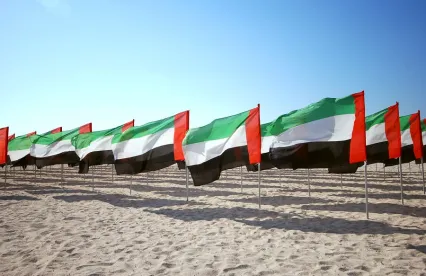The 1983 Riyadh Arab Agreement for Judicial Cooperation (Riyadh Convention) is intended to facilitate judicial cooperation between the signatory countries. It is an important tool for the enforcement of arbitral awards in the Arab world, particularly in countries, such as Libya, Sudan, Somalia, and Yemen, which are not signatories to the 1958 Convention on the Recognition and Enforcement of Foreign Arbitral Awards (commonly known as the New York Convention).
However, until recently, parties seeking to effect service from the DIFC Court on a resident in another Riyadh Convention signatory state faced significant hurdles resulting from a finding by the DIFC Court in Pearl Petroleum Company Limited & Others v The Kurdistan Regional Government of Iraq1 that service had to be effected in accordance with Article 6 of the Riyadh Convention.
Article 6 of the Riyadh Convention provides that the service of “legal and non-legal documents and papers” relating to proceedings is to be affected by the court in the district in which the person or entity resides, rather than through diplomatic channels.
The effect of the DIFC Court’s determination in Pearl Petroleum – that the Article 6 service procedure is both mandatory and exclusive – was that, if the receiving court refused or failed to effect service, it was not permissible to adopt an alternative means of service and the party seeking service was left without a remedy.
A recent decision from the DIFC Court appears to have resolved this problem. The DIFC Court of Appeal in Lahela v Lameez2 considered an appeal against the Court of First Instance’s decision to reject the defendant’s application to set aside an ex parte DIFC Court order entitling the claimant to serve a DIFC Court order recognizing and enforcing a DIFC-seated arbitral award (the Enforcement Order) by alternative means (the Alternative Service Order). The Alternative Service Order had been sought by the claimant after the local court in Erbil, in the Republic of Iraq, refused to serve the Enforcement Order on the defendant, a company registered in Erbil, as required by Article 6 of the Riyadh Convention. The defendant argued that Pearl Petroleum had correctly found that the Riyadh Convention is part of DIFC law, that Article 6 of the Riyadh Convention provides the mandatory and exclusive mechanism for service, and that the DIFC Court does not have the power to order alternative service.
The DIFC Court of Appeal found that Article 3(2) of Federal Law No. 8 of 2004 Concerning Financial Free Zones – which provides that the Financial Free Zones shall be subject to all Federal laws, with the exception of Federal civil and commercial laws – expressly excludes the provisions of Article 6 of the Riyadh Convention from application within the DIFC. In reaching this conclusion, the Court determined that Article 6 is a provision relating to civil procedure and is therefore properly characterized as a “civil and commercial law” for the purposes of the exemption in Article 3(2).
The DIFC Court of Appeal further held that “there are no terms of the [Riyadh] Convention to the effect that service under its provisions is to be the exclusive means by which service can be validly effected” and any construction to that effect would be “antithetical to its evident objects and purpose”. The DIFC Court of Appeal therefore concluded that, on its proper construction, the Riyadh Convention does not provide the only means by which service may validly be effected; however, the facilities provided by the Riyadh Convention are available to the Court should it choose to use them.
Accordingly, the decision in Lahela confirms that the DIFC Court is not obliged to apply the provisions of Article 6 of the Riyadh Convention, and it can order alternative means of service (or, if permitted by its own rules, dispense with service altogether).
In light of this decision, the process for serving a DIFC Court order recognizing and enforcing a DIFC-seated arbitral award on a foreign defendant resident in another Riyadh Convention signatory state should now be easier.
Given the broad reach of the Riyadh Convention, the decision of the DIFC Court of Appeal is a positive move and reaffirms the DIFC as an arbitration-friendly jurisdiction.
Footnotes
1 [2017] DIFC ARB 003
2 [2020] DIFC CA 007





 />i
/>i
